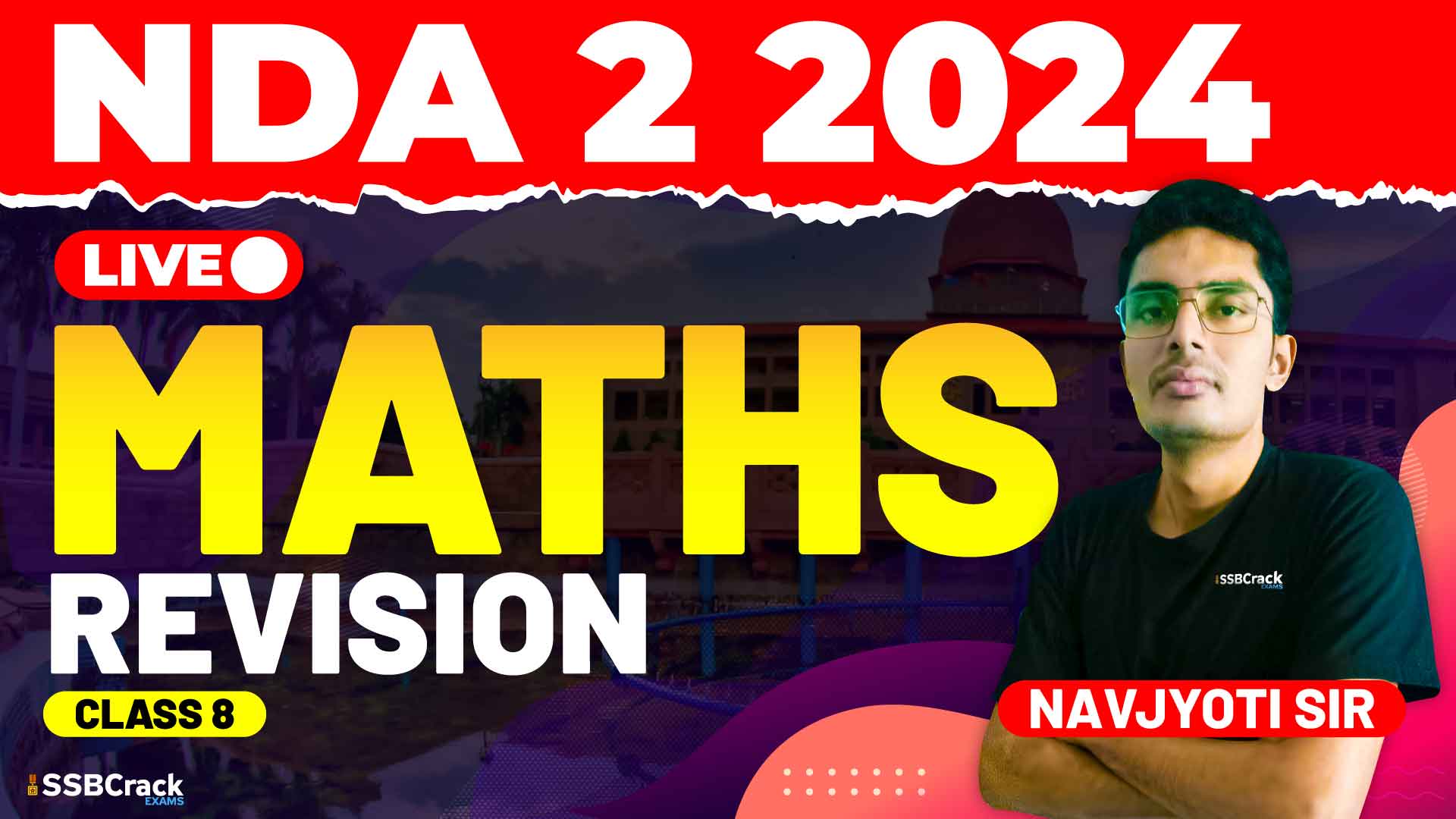The NDA-NA Exam, particularly Paper I – Mathematics, is known for its challenging and comprehensive questions. Among the various topics, Permutations and Combinations along with Sequence and Series hold significant weight in the exam. These topics are not only crucial for scoring well but also form the foundation for understanding more complex mathematical concepts. The recent class was dedicated to revising these topics through multiple-choice questions (MCQs), offering valuable insights into effective strategies for tackling them. This article will highlight key concepts, strategies, and tips to approach these topics, keeping in mind the exam pattern of the NDA-NA Exam.
Understanding Permutations and Combinations
Permutations and Combinations are fundamental concepts in combinatorial mathematics that deal with counting and arrangement problems. Understanding the difference between these two is essential:
- Permutations refer to the arrangement of objects in a specific order. Since order matters in permutations, the number of possible permutations is usually higher than combinations.
- Combinations refer to the selection of objects without considering the order. Combinations are used when the arrangement is not important, and thus the count is typically lower than permutations.
These concepts are frequently tested in the NDA-NA exam through problems that require arranging, selecting, or combining objects under various conditions.
Key Strategies for MCQs:
- Clear Conceptual Understanding: Ensure that you have a strong grasp of the basic definitions and differences between permutations and combinations. Misunderstanding these can lead to errors in solving MCQs.
- Practice a Variety of Problems: Permutations and combinations can be applied in many different contexts. Practice problems involving circular permutations, selection under restrictions, and word formation to cover all possible question types.
- Use Logical Reasoning: Some permutation and combination problems can be solved using logical reasoning rather than direct calculations. Look for patterns or shortcuts that can simplify the problem.
- Time Management: These problems can be time-consuming, especially if they involve large numbers or complex conditions. Practice to improve speed without sacrificing accuracy.
Grasping Sequence and Series
Sequence and Series are another crucial topic in the NDA-NA Mathematics syllabus. They involve understanding the progression of numbers and the sum of terms in a sequence.
- Arithmetic Sequence: A sequence in which each term is obtained by adding a fixed number to the previous term.
- Geometric Sequence: A sequence where each term is obtained by multiplying the previous term by a fixed number.
- Series: The sum of the terms of a sequence. Both arithmetic and geometric series are commonly tested.
Key Strategies for MCQs:
- Memorize Key Formulas: While we are not using formulas directly in this blog, it’s crucial to have the key concepts and their applications at your fingertips. Focus on understanding how the sequences are generated and how to calculate sums.
- Recognize Patterns Quickly: Many MCQs will present you with a sequence and ask for the next term, the sum of terms, or properties of the sequence. Being able to quickly identify whether a sequence is arithmetic, geometric, or neither is critical.
- Work on Problem-Solving Speed: Sequence and series problems often require multiple steps. The quicker you can perform each step accurately, the better you’ll manage your time during the exam.
- Practice Mixed Problems: Sequence and series questions can be straightforward or can combine with other concepts such as inequalities or functions. Practicing a variety of problems will prepare you for any twist that might appear in the exam.
Approaching MCQs in the NDA-NA Exam
The key to mastering MCQs, especially in a competitive exam like NDA-NA, lies in precision, speed, and strategy. Here are some tips to enhance your performance:
- Thorough Understanding Before Calculation: Always ensure that you thoroughly understand what the question is asking before diving into calculations. Sometimes the question is simpler than it first appears.
- Use the Process of Elimination: In multiple-choice questions, eliminating the obviously incorrect answers can increase your chances of choosing the right one. This technique is particularly useful when you’re unsure about the correct answer.
- Time Allocation: Allocate time to each question wisely. If a question seems too complex or time-consuming, it may be better to skip it initially and return to it later if time permits.
- Simulate Exam Conditions: Practice under exam-like conditions, timing yourself as you work through problems. This will help you build the necessary speed and confidence for the actual exam day.
Conclusion
Permutations and Combinations, along with Sequence and Series, are essential topics for the NDA-NA Mathematics Paper I. A clear understanding of these concepts, coupled with strategic practice of MCQs, will significantly enhance your performance in the exam. Focus on mastering the basics, practice a wide variety of problems, and develop efficient problem-solving techniques to manage your time effectively during the exam.
Success in the NDA-NA Exam is not just about knowing the material, but about knowing how to apply that knowledge quickly and accurately under pressure. With consistent practice and the right approach, you can excel in these topics and boost your overall score in the Mathematics Paper. Good luck with your preparation!







